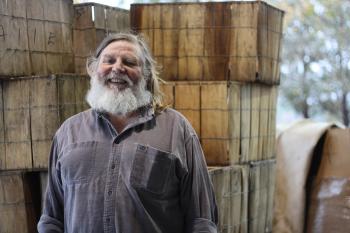Willy Phillips

1997 North Carolina Fisheries Reform Act
The Fisheries Reform Act is the most significant fisheries legislation in NC history.
In 1994, the North Carolina General Assembly approved a moratorium on the sale of new commercial fishing licenses and established the 19-member Fisheries Moratorium Steering Committee to oversee a study of the state's entire coastal fisheries management process and to recommend changes to improve that process. The Moratorium Steering Committee included legislators, fisheries managers, scientists, commercial fishermen, and recreational fishermen. The committee commissioned six research studies and reviewed a broad range of issues, including fishing licenses, fishing gear, habitat protection, agency organization, and law enforcement. The committee issued a draft report in the late summer of 1996, held 19 public meetings across the state, and adopted a final report in October 1996 that formed the basis for the Fisheries Reform Act. Governor James B. Hunt signed the Act into law on August 14, 1997.
The 1997 North Carolina Fisheries Reform Act: An Oral History Perspective was made possible by the North Carolina Sea Grant Community Collaborative Research Grant Program.
Mary Williford
Willy Phillips is a seasoned professional in the commercial fishing industry, with a particular focus on crabbing. He has spent a significant portion of his life in fish houses and has been deeply involved in fisheries legislation. Phillips has been an advocate for the crab fishery and has worked towards the development of a crab management plan. He has also been a vocal critic of the commercial fishing industry, proposing a complete shutdown and rebuild of the industry in North Carolina. Despite the challenges facing the industry, Phillips has remained committed to mentoring local children and young fishers.
Scope and Content Note
This interview with Willy Phillips, conducted by Barbara Garrity-Blake on December 6, 2016, provides an in-depth look at Phillips' life, his views on the commercial fishing industry, and his advocacy work. The interview begins with a description of Phillips' business and his childhood spent in fish houses. It then delves into how Phillips got involved in fisheries legislation, including his concerns about pollutants being pumped into the Pamlico River. The interview also discusses the changes in crabbing due to climate change, equipment, and demographic shifts, and how Phillips would like to change the crab fishery. Phillips shares his experiences advocating for a crab management plan and offers advice to young fishers. He also expresses his frustration with the state regulatory agencies and the failures of the Fisheries Reform Act to address water quality. Phillips' views on the commercial fishing industry are a significant part of the interview. He discusses his proposal to shut down and rebuild commercial fishing in North Carolina and shares his thoughts on where commercial fishing fits into the greater economy. He also talks about the factors affecting the blue crab industry. Towards the end of the interview, Phillips shares his concerns about the future of the industry and his belief that it is going away unless something changes quickly. Despite these challenges, Phillips expresses hope for the future and emphasizes the importance of confronting issues head-on.
Please Note: The oral histories in this collection are protected by copyright and have been created for educational, research and personal use as described by the Fair Use Doctrine in the U.S. Copyright law. Please reach out Voices@noaa.gov to let us know how these interviews are being used in your research, project, exhibit, etc. The Voices staff can help provide other useful resources related to your inquiry.
The NOAA mission is to understand and predict changes in climate, weather, oceans, and coasts, to share that knowledge and information with others, and to conserve and manage coastal and marine ecosystems and resources. The Voices Oral History Archives offers public access to a wide range of accounts, including historical materials that are products of their particular times, and may contain offensive language or negative stereotypes.
Voices Oral History Archives does not verify the accuracy of materials submitted to us. The opinions expressed in the interviews are those of the interviewee only. The interviews here have been made available to the public only after the interviewer has confirmed that they have obtained consent.
